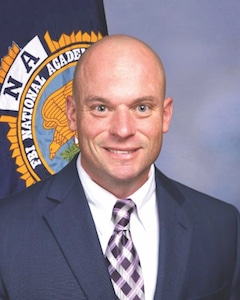Police officials decry criminal justice bill
Neal Rohlfing Jason Donjon Jeff Prosise
The Illinois General Assembly narrowly passed a sweeping criminal justice omnibus bill last Wednesday shortly before the 102nd General Assembly members were sworn in.
Monroe County’s law enforcement leaders, like many throughout the state, decried the legislation.
Some of the most consequential changes in the bill include eliminating cash bail in 2023, creating a task force to study topics like qualified immunity, simplifying the process to decertify police officers, limiting use of force and requiring all officers to wear body cameras.
The legislation had several controversial elements eliminated or reduced during private negotiations after objections from labor unions, law enforcement groups and politicians, but the changes are still far-reaching.
The over 700-page package of laws passed the Senate by a vote of 32-23 around 5 a.m. Jan. 13 after being given to lawmakers shortly before 4 a.m.
State Sen. Paul Schimpf (R-Waterloo) voted against the bill in one of his final votes in office.
“The Democrats’ criminal justice omnibus is a bill that will make life more difficult for our law enforcement heroes,” Schimpf said before the bill passed, adding it should not have been brought up during a lame-duck session and rushed through.
Late last Wednesday morning, the House passed the measure with the minimum number of votes needed, with the final tally being 60-50 in that body.
State Rep. Nathan Reitz, a Steeleville Democrat who did not respond to requests for comment, also voted against the measure in one of his last votes in office.
The omnibus bill now goes to the desk of Gov. JB Pritzker, who has indicated he will sign it.
Law enforcement throughout the state appears to have been largely against the bill.
The Illinois Law Enforcement Coalition, which includes the Illinois Fraternal Order of Police State Lodge, Illinois Sheriffs Association and Illinois Association of Chiefs of Police, said it was working with lawmakers on a separate reform bill that was then added to the package that passed.
“The result is a betrayal of the public trust that gives many more advantages to criminals than the police,” the coalition said. “The legislation includes no way to pay for any of these law abiding citizen-threatening measures, so taxpayers will have to pay extra for the privilege of being crime victims.”
Monroe County’s law enforcement leaders concurred with that assessment to varying degrees.
“I’m really dumbfounded by it,” Monroe County Sheriff Neal Rohlfing said of the legislation. “They’re not going to get the results they were wishing for.”
Rohlfing also described the bill as “pretty crushing to law enforcement.”
“It’s nothing but an assault on law enforcement,” he added.
Waterloo Police Chief Jeff Prosise was not quite as scathing in his assessment.
“There are parts of the bill that could be turned into positives,” he said. “And there are parts that I wish were not in there.”
Columbia Deputy Police Chief Jason Donjon – who was appointed Tuesday night as chief to succeed retiring Columbia Police Chief Jerry Paul – fell somewhere between Rohlfing and Prosise in his response, though he was closer to Rohlfing’s opinion.
“I am not opposed to criminal justice reform and believe we need to work with citizens constantly. No agency, officer, or human being is perfect; complacency in any department is detrimental,” Donjon said. “I feel (the bill) goes much too far and would result in an increase in violent crime, undermine public safety and deny justice to crime victims.”
Rohlfing and Donjon also agreed it will be more difficult to get quality candidates for open police positions if the bill becomes law, with Donjon saying it would have a “substantial impact” on recruitment.
The specifics of the law are wide-ranging, as it creates at least five new acts and amends numerous other statutes.
One of the most fundamental changes is the bill would abolish cash bail in 2023, replacing it with a system of pre-trial release the courts will develop based on a detainee’s alleged crime, the risk of not appearing for their court date and threat or danger they may pose to the community if released.
Donjon listed that as one of the “more concerning portions” of the law, while Rohlfing said it nixes one of his plans.
“We’re not going to need a jail addition, I’ll be honest,” the sheriff said, adding many victims will be upset that the suspected criminal will go free shortly after being arrested.
Prosise said he could not form an opinion on the matter until the courts create the replacement system.
“The bail thing is am unknown,” he said. “We don’t know how that is going to affect us.”
Probably the most controversial element of the bill that was removed was a provision that would have ended qualified immunity for police officers, removing their protection from liability in civil suits if they violated rights in the Illinois Constitution.
Instead, the bill creates a yearlong, 18-member task force that will investigate and develop procedures to protect “constitutional rights and remedies” if those are violated, with a specific examination of qualified immunity.
That task force should submit its finding by May.
Rohlfing said he expects the task force to recommend ending qualified immunity because of how it was created and who will appoint the members.
“If law enforcement can be sued civilly for something as simple as hurt feelings, the police will not be the police,” he said. “I am seriously concerned about the future of law enforcement and those in the profession.”
Prosise and Donjon said they were “relieved” that portion of the bill was removed.
A slightly less controversial aspect of the legislation centers on police certification.
The bill gives the state more power over who can work in law enforcement and makes it easier to rectify and fire police officers who cause problems.
It does this by granting the Illinois Law Enforcement Training and Standards Board the discretion to decertify officers based on whether a review board determines they violated contract guidelines.
That means an officer could be decertified if they commit a felony or disqualifying misdemeanor, even if they were never charged or convicted, use excessive force, tamper with dashboard camera, body cameras, or evidence, or commit perjury or engage in “unprofessional conduct” like harming the public.
Previously, the board could only decertify an officer if he or she was convicted of a felony or a limited set of misdemeanors.
Donjon said he was concerned these changes would allow officers “to be reprimanded or fired based on anonymous and unsubstantiated complaints.”
Less controversial is the creation of the Statewide Use of Force Standardization Act.
Per that part of the bill, the Legislature will establish statewide use-of-force standards by 2022.
It also provides that use of force is only permissible if an officer determines it is necessary to defend either themselves or others from bodily harm while making an arrest. It makes use of deadly force in a fleeing individual impermissible – unless that person cannot be apprehended later and is likely to harm others.
This law prohibits certain uses of force like chokeholds, using force as a punishment or in retaliation unless authorized, using deadly force on someone who is only a danger to themselves, using non-lethal projectiles like stun guns and rubber bullets on someone’s head, groin or back, firing any type of round, including rubber, into a crowd and utilizing tear gas and pepper spray without first letting a crowd disperse after being warned.
Additionally, officers can only use deadly force after they make a reasonable effort to identify themselves and warn they are about to use deadly force, and the bill prohibits them from using it on someone committing a property crime not tied to terrorism or another action when deadly force is allowed.
Finally, this act would require officers to provide immediate medical assistance to any injured individual and intervene and file a report within five days of another officer using excessive force.
Rohlfing, Prosise and Donjon said their departments already have policies covering many of these issues.
The last major provision of the law is that it would require all law enforcement agencies to have body cameras by 2025.
Opponents originally called the act requiring this the “defund the police” bill because it called for a non-compliance penalty that reduced state funding to agencies that violate the mandate. That was replaced with a reward for compliance, with the ILETSB giving preference in grant funding to those who follow this mandate.
The law enforcement leaders indicated no major concerns with this area of the package, though Rohlfing said it is another “unfunded mandate” from the state. Prosise said the grant funding should help offset some of the costs, though maintenance may be an issue.
In addition to these major changes, the law makes myriad minor ones to the criminal justice system like allowing suspects in custody to make three phone calls within three hours of being taken into custody, requiring a standardized form to be used when someone dies while in custody and not requiring employers to bargain with unions over matters relating to the discipline or discharge of officers.
It also mandates officers get more training like Crisis Intervention Training that has been a focus here recently.
“I think that’s great. Any of the training, I think that’s positive,” Prosise said.









